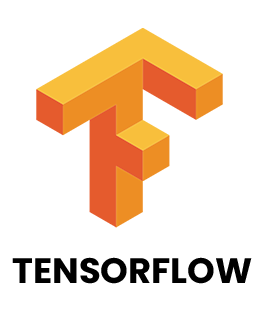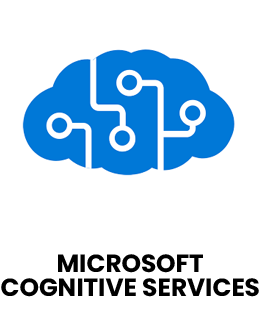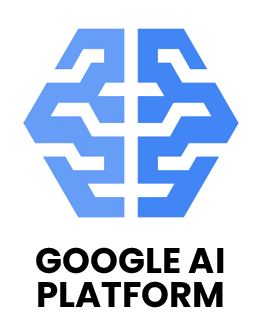The training course on Artificial Intelligence in ACTE is meant for people who are interested in learning robotics, biometrics and who are very keen on learning AI. Artificial Intelligence is the stimulation of human intelligence through machines and mostly through computer systems. It is one of the interesting course to be studied. ACTE Imparts Artificial Intelligence Class Room & Online Training Course Enroll Now!!!
Yes, In recent years, careers in artificial intelligence (AI) have grown exponentially to meet the demands of digitally transformed industries. While there are plenty of jobs in artificial intelligence, there’s a significant shortage of top tech talent with the necessary skills.
Top 5 Careers in Artificial Intelligence
- Machine Learning Engineer
- Data Scientist
- Business Intelligence Developer
- Research Scientist
- Big Data Engineer/Architect
AI has become the cutting-edge technology in today's technological world with more and more companies adopting it every single day.ACTE AI training helps you get on the AI bandwagon and apply for the highest paid and best suitable jobs in the market.The average salary of an experienced AI professional is $246,500 per year.
yes,As Artificial Intelligence is on the rise and there is an exponential growth in demand for AI professionals and also there is a scope in developing the machines in game playing, speech recognition machine, language detection machine, computer vision, expert systems, robotics and many more.you can expect a high salary in artificial intelligence jobs.According to the job site Indeed, the demand for AI skills has more than doubled over the past three years, and the number of job postings is up by 119 percent.
We are happy and proud to say that we have strong relationship with over 700+ small, mid-sized and MNCs. Many of these companies have openings for Artificial Intelligence Architect.Moreover, we have a very active placement cell that provides 100% placement assistance to our students. The cell also contributes by training students in mock interviews and discussions even after the course completion.
The applications of Artificial Intelligence vary from autonomous cars to translation, from chatbots to image recognition. Digital assistants like Siri and Alexa are typical examples of AI applications, and with recent increased efficiencies in AI, we should see more AI applications in the future.
The AI course is an advanced course and hence the following knowledge would be useful:
- Machine learning knowledge is compulsory.
- Fundamental Python programming skills are needed.
No.But you don’t have to be a software engineer either. Solid basic programming skills are a must. But advanced notions like object-oriented programming and software engineering aren’t needed. And many of those going into AI have a math background, so they’re actually better at some computer science notions than programmers, such as analysis of algorithms.
Our course-ware is designed to give a hands-on approach to the students in Artificial Intelligence. The course is made up of theoretical classes that teach the basics of each module followed by high-intensity practical sessions reflecting the current challenges and needs of the industry that will demand the student's time and commitment.
Absolutely! Although, you will need to have some well-developed engineering skills and a good command of advanced mathematics or you will struggle mightily through your learning experience. These skills will get the conversation going with potential employers, most of which have pre-machine learning needs.
Artificial Intelligence continues to advance and improve the quality of life across multiple industry settings.Candidates can find training programs that offer specific majors in AI or pursue an AI specialization from within majors such as computer science, health informatics, graphic design, information technology or engineering. As a result, those with the skills to translate digital bits of information into meaningful human experiences will be skillful in artificial intelligence to be sustaining and rewarding.
Artificial Intelligence enters our lives in many different ways.The understanding of artificial intelligence(AI) opens lots of opportunities. As you learn more about artificial intelligence, you get a chance to become a developer who will create advanced AI applications like IBM’s Watson or self-driving cars. There are endless possibilities in this field. Studying artificial intelligence is necessary for a career in software engineering, in case you want to work with human-machine interfaces, neural networks, and quantum artificial intelligence. Industries like Amazon and Facebook use artificial intelligence to make shopping list recommendations and to analyze big data.The understanding of artificial intelligence is also necessary for hardware engineers who create home assistants and parking assistants.
Right from healthcare sectors to financial, BFSI to e-commerce, FMGC and so on, every single vertical is keen to devour the AI-powered opportunities to yield significant benefits.
Why Artificial Intelligence in Cyber Security is Need of the Hour
Where artificial intelligence is really needed
AI’s crucial role right now is to offload work from human cybersecurity engineers, to handle the depth and detail that humans cannot tackle fast enough or accurately enough. Advances in machine learning technology mean that AI applications can also automatically adapt to changes in threats and spot problems as they arise.
Here are some of the most pressing cybersecurity needs that AI tools and platforms can help to meet.
Handling huge volumes of security data
- People go glassy-eyed very quickly when confronted with the huge amounts of log data and alerts produced by today’s systems.
- AI software running on today’s powerful processors can zip through more data in minutes than humans could tackle in months and list problems and anomalies immediately.
Picking out threat needles in cyber haystacks
- Cyber criminals are already inside many systems, waiting for the right moment to complete their attacks. They can often hide from humans.
- On the other hand, AI can rapidly analyse swathes of situations and behaviours to spot the threat needles that correspond to malicious activity.
Acceleration of detection and response times
- AI can speed up detection of genuine problems, rapidly cross-referencing different alerts and sources of security data.
- Human cyber security experts will still make the calls on the priorities of the incidents to be handled but can be further helped by AI systems that automatically suggest plans for optimizing responses.
Breathing space for human cyber security teams
- Humans excel in using their imagination, experience, and judgment to put better security strategies in place and improve overall security posture.
- That is, if they are not being swamped out by alerts and incidents. With AI supporting them, however, they can get back to what they do best.
It is now a critical tool for getting on top of cyber security, managing the volumes of threat data for better detection and response and keeping cyber defences high enough to repel or evict attackers before any serious damage can be done.
Improved Cybersecurity with AI and Machine Learning (ML)
Complicated hacking techniques, such as obfuscation, polymorphism, and others, make it a real challenge to identify malicious programs. Besides, security engineers with domain-specific workforce shortage is another issue. With AI stepping into cybersecurity, experts and researchers are trying to use its potential to identify and counteract sophisticated cyber-attacks with minimal human intervention. AI networks and machine learning, a subset of AI, has enabled security professionals to learn about new attack vectors.
Machine learning in cybersecurity is much more than a mere application of the algorithms. It can be used to analyze cyber threats better and respond to security incidents. There are a few other significant benefits of machine learning, which includes
- Detects malicious activities and stops cyber attacks
- Analyzes mobile endpoints for cyber threats – Google is already using machine learning for the same
- Improves human analysis – from malicious attack detection to endpoint protection
- Uses in automating mundane security tasks
- No zero-day vulnerabilities








































